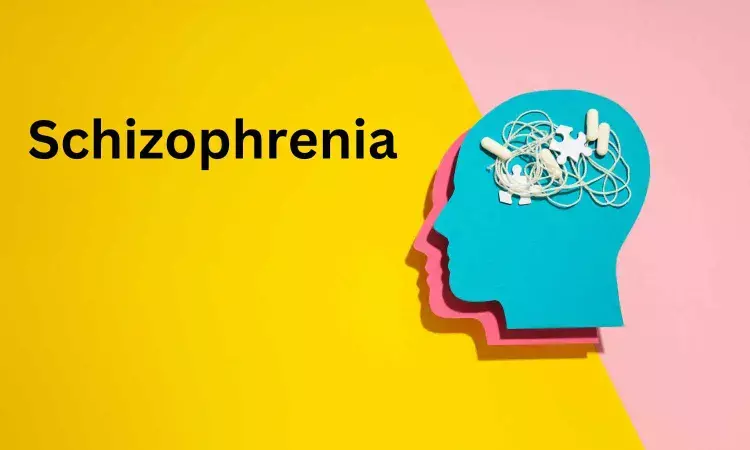- Home
- Medical news & Guidelines
- Anesthesiology
- Cardiology and CTVS
- Critical Care
- Dentistry
- Dermatology
- Diabetes and Endocrinology
- ENT
- Gastroenterology
- Medicine
- Nephrology
- Neurology
- Obstretics-Gynaecology
- Oncology
- Ophthalmology
- Orthopaedics
- Pediatrics-Neonatology
- Psychiatry
- Pulmonology
- Radiology
- Surgery
- Urology
- Laboratory Medicine
- Diet
- Nursing
- Paramedical
- Physiotherapy
- Health news
- Fact Check
- Bone Health Fact Check
- Brain Health Fact Check
- Cancer Related Fact Check
- Child Care Fact Check
- Dental and oral health fact check
- Diabetes and metabolic health fact check
- Diet and Nutrition Fact Check
- Eye and ENT Care Fact Check
- Fitness fact check
- Gut health fact check
- Heart health fact check
- Kidney health fact check
- Medical education fact check
- Men's health fact check
- Respiratory fact check
- Skin and hair care fact check
- Vaccine and Immunization fact check
- Women's health fact check
- AYUSH
- State News
- Andaman and Nicobar Islands
- Andhra Pradesh
- Arunachal Pradesh
- Assam
- Bihar
- Chandigarh
- Chattisgarh
- Dadra and Nagar Haveli
- Daman and Diu
- Delhi
- Goa
- Gujarat
- Haryana
- Himachal Pradesh
- Jammu & Kashmir
- Jharkhand
- Karnataka
- Kerala
- Ladakh
- Lakshadweep
- Madhya Pradesh
- Maharashtra
- Manipur
- Meghalaya
- Mizoram
- Nagaland
- Odisha
- Puducherry
- Punjab
- Rajasthan
- Sikkim
- Tamil Nadu
- Telangana
- Tripura
- Uttar Pradesh
- Uttrakhand
- West Bengal
- Medical Education
- Industry
Can Metformin Counteract Antipsychotic-Induced Hyperprolactinemia? New Evidence Emerges

Taiwan: A recent meta-analysis of randomized controlled trials has highlighted the potential of metformin in reducing antipsychotic-induced hyperprolactinemia in patients with schizophrenia. Metformin effectively lowered prolactin levels by 34.88 ng/mL in patients with schizophrenia experiencing antipsychotic-induced hyperprolactinemia.
The meta-analysis published in the Journal of Psychopharmacology revealed that the reduction was more pronounced with higher doses (1500 mg), shorter treatment durations (<24 weeks), BMI over 25 kg/m², and illness duration exceeding one year compared to controls. Additionally, metformin demonstrated good tolerability, with no significant increase in adverse events or treatment discontinuation, underscoring its potential as an adjunct therapy.
Hyperprolactinemia is a frequent side effect of antipsychotic medications, affecting up to 70% of individuals with schizophrenia. It can lead to complications such as menstrual irregularities, sexual dysfunction, and decreased bone mineral density, increasing the risk of osteoporosis. Given the limited treatment options available, researchers have been investigating the potential of metformin, a commonly used antidiabetic drug, as a therapeutic intervention for managing antipsychotic-induced hyperprolactinemia. Mong-Liang Lu, Department of Psychiatry, Wan Fang Hospital, Taipei Medical University, Taipei, Taiwan, and colleagues aimed to evaluate its effectiveness in addressing this concern.
For this purpose, the researchers conducted a systematic search across PubMed, CNKI, Embase, Cochrane, and Web of Science up to January 31, 2024, to identify randomized controlled trials (RCTs) assessing the impact of metformin on prolactin levels in patients with schizophrenia. The extracted data were analyzed using a random-effects meta-analysis to synthesize the findings.
Key findings:
- The meta-analysis included 10 randomized controlled trials with 1,046 participants, where 584 received metformin, and 462 were in the control group (placebo or no treatment).
- Metformin significantly lowered prolactin levels compared to the control group, with an average reduction of 34.88 ng/mL.
- Higher doses (1,500 mg), shorter treatment durations (less than 24 weeks), higher BMI (above 25 kg/m²), and longer illness duration (more than one year) were linked to greater reductions in prolactin levels.
- Metformin was well tolerated, with no significant increase in adverse events or treatment discontinuation compared to the control group.
The authors of this meta-analysis highlight the potential of metformin as a therapeutic option for managing antipsychotic-induced hyperprolactinemia in patients with schizophrenia. Their findings suggest that metformin is well tolerated and particularly effective at higher doses and shorter treatment durations in individuals with a higher BMI and those with a longer duration of illness. However, the researchers emphasize the need for cautious interpretation due to the high heterogeneity across studies.
They recommend further investigations to explore demographic and clinical factors that may influence treatment response, ultimately optimizing metformin’s role in managing hyperprolactinemia in this patient population.
Reference:
Goh, K. K., Chen, H., & Lu, L. Evaluating the efficacy of metformin in reducing hyperprolactinemia among patients with schizophrenia: A meta-analysis of randomized controlled trials. Journal of Psychopharmacology. https://doi.org/10.1177/02698811251326945
Dr Kamal Kant Kohli-MBBS, DTCD- a chest specialist with more than 30 years of practice and a flair for writing clinical articles, Dr Kamal Kant Kohli joined Medical Dialogues as a Chief Editor of Medical News. Besides writing articles, as an editor, he proofreads and verifies all the medical content published on Medical Dialogues including those coming from journals, studies,medical conferences,guidelines etc. Email: drkohli@medicaldialogues.in. Contact no. 011-43720751


